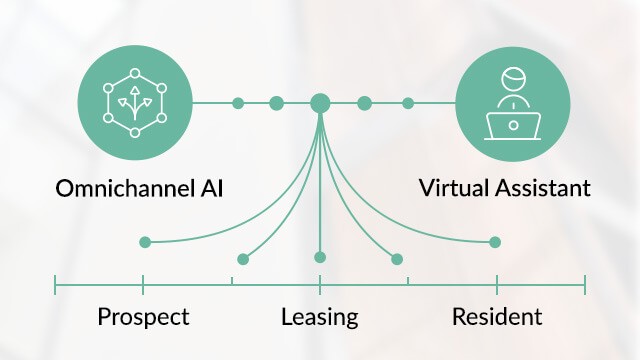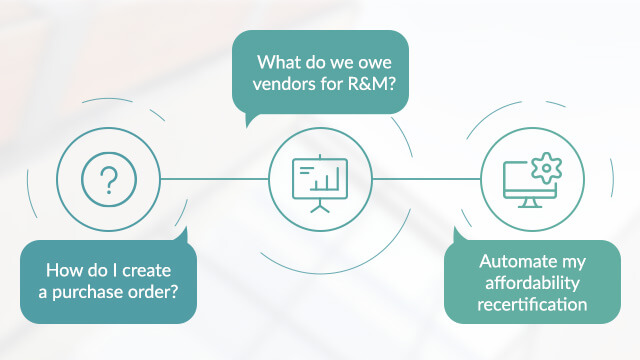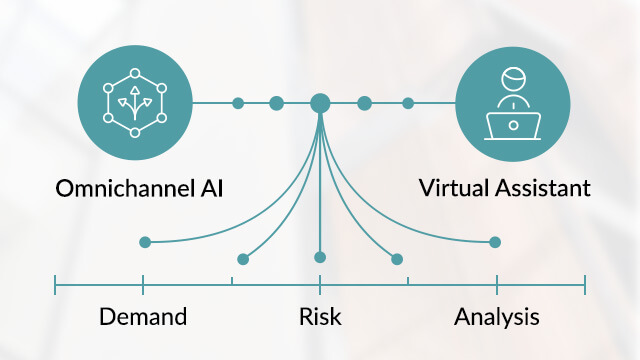Maximizing Multifamily Management: The Power of AI Systems

An Artificial Intelligence (AI) system is a computer program or a set of algorithms designed to perform tasks that typically require human intelligence. These tasks include problem-solving, learning, perception, reasoning, language understanding and decision making. AI systems can be classified into various categories based on their capabilities and functionalities.
In AI, it's crucial to distinguish between systems and solutions, as not all AI is created equal. While the terms are often interchangeable, understanding their nuances is essential for driving positive outcomes in multifamily management. AI systems encompass a broader scope, comprising a set of algorithms or computer programs designed to perform tasks requiring human-like intelligence, such as problem-solving, learning and decision making. On the other hand, AI solutions are more focused applications or tools built on top of AI systems to address specific challenges or tasks within a particular domain.
Fit for purpose is paramount when leveraging AI in multifamily management. It's about identifying the right system for the right functionality or application within the context of property operations. This entails strategic investment and development in technology and human capital to drive adoption effectively. Property managers must navigate the complex landscape of AI offerings, considering functionality, scalability and interoperability to ensure alignment with business needs.
In the fast-paced world of multifamily real estate, leveraging innovative AI systems is key to success. As investors, owners and operators navigate the complexities of property management, adopting AI systems is becoming increasingly essential. These AI-powered solutions offer transformative capabilities across three critical areas: engagement, intelligence and management.

Systems of engagement play a pivotal role in fostering meaningful connections between property managers and residents in the multifamily real estate sector. These systems, empowered by AI, offer myriad benefits that enhance resident satisfaction and optimize prospect engagement. Imagine an AI-driven virtual assistant that can recall all conversations with prospects or residents, ensuring they feel understood without the need to repeat themselves. Such a system provides real-time, comprehensive knowledge of the community, available inventory and neighborhood features, enhancing the overall living experience.
Moreover, AI-powered systems of engagement are available round the clock, providing consistent, knowledgeable and helpful assistance regardless of when or how residents choose to interact with them. From serving as a simple help bot to acting as a digital concierge, these systems empower and delight prospects and residents, granting them more control over their living experience.

Moving on to systems of intelligence, AI serves as the connective tissue that normalizes and transfers critical data between applications, facilitating better context, predictions and recommendations. As a personal analyst, AI delves into facts and relationships, uncovering hidden value and providing actionable insights for property managers. Importantly, AI speaks the language of both humans and machines, democratizing data access and eliminating the need for specialized technical knowledge.

Finally, systems of management liberate property management teams from mundane tasks, allowing them to focus on high-value activities. By automating routine processes, AI systems boost efficiency and ensure compliance with legal and policy requirements in a rapidly evolving regulatory environment. These systems support various operational modalities, whether onsite or centralized, maximizing multifamily management efficiency.
Incorporating AI systems across engagement, intelligence and management domains revolutionizes multifamily management, offering unparalleled capabilities to investors, owners and operators. By embracing these innovative solutions, stakeholders can unlock new opportunities, optimize performance and navigate the dynamic landscape of multifamily real estate with confidence and agility. As the industry evolves, integrating AI systems will drive success and maintain a competitive edge.